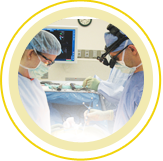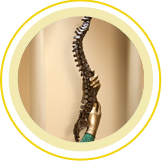Many folks will tell you they were doing the most inane thing, like tying their shoes, when they suddenly couldn’t move. Their lower back felt like it had been hit by a train. If you suffer from lower back pain, no doubt something like this has happened to you too. This could be one of the signs you may be suffering from a herniated disc.
Slipped Or Herniated Discs
We have 24 vertebrae in our spinal column. They are each cushioned by soft discs which allow us to move, bend, and turn. They protect our bones by absorbing shock from all our daily activities.

Sometimes a disc can “slip” out of place causing severe pain. This is known interchangeably as a slipped or herniated disc. As we get older, our discs can harden and lose their watery content causing them to slip, move, or break down.
Most Obvious Signs You May Have A Herniated Disc
The Pain
Pain is the most obvious sign of a herniated disc. It usually is centered in the lower back area, but it can also occur in the neck area. The pain will become more severe when sitting down due to the extra pressure on the lower discs.
Location And Type Of Pain
With a herniated disc, pain will move or radiate down the leg all the way to your calf. You may feel a burning pain, numbness, or tingling in front or the back of your thighs, leg, or foot. This is known as sciatica.
More Intense Pain With Certain Activities
If you cough, sneeze, bend forward or down, or lift a heavy object, the pain will become more severe. This usually comes on suddenly without warning.
Who Is More Likely To Suffer With A Herniated Disc?
Risk factors for developing a herniated disc include the following:
- Those who have physically demanding jobs
- Those with weak muscles and a sedentary lifestyle
- Being overweight, which puts a strain on your discs to support the weight
- Heredity
- Smoking
- Getting older
Diagnosis
The only way to know for sure if you have a herniated disc is to see Spine & Scoliosis Specialists for tests and an evaluation.
Don’t wait if you suspect you have a herniated disc and are suffering with any of the above symptoms. Contact Spine & Scoliosis Specialists at 336.333.6306, or request an appointment online, for an evaluation and treatment options.



